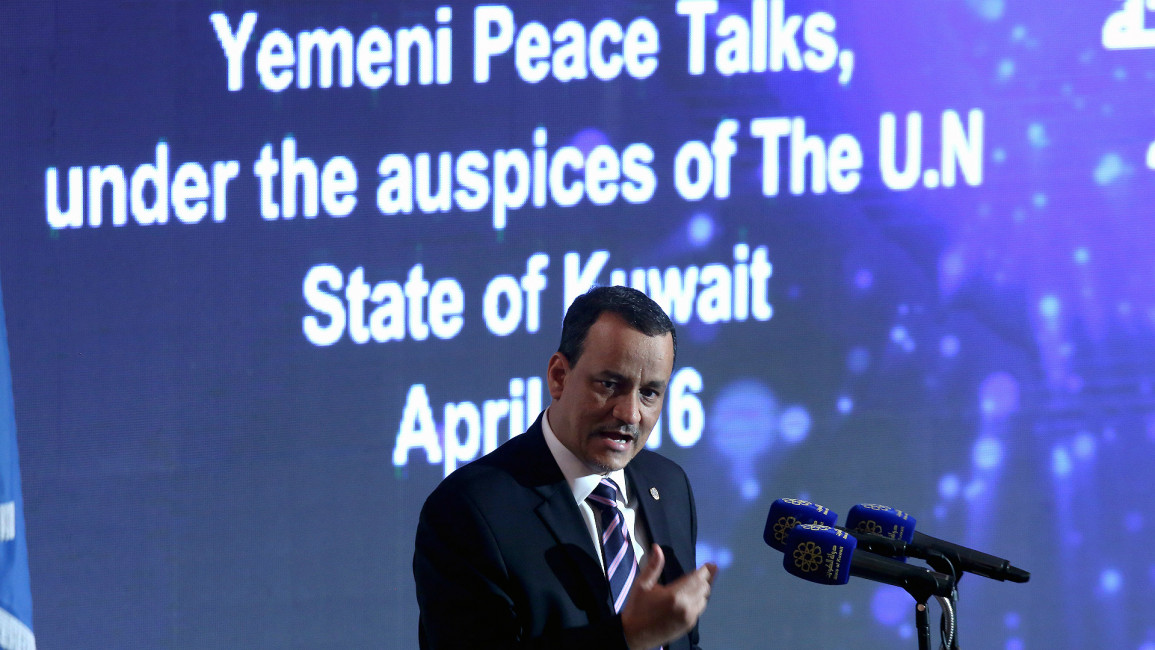Yemen peace talks 'to take two-week break'
Yemen's warring parties are taking a two-week break in peace talks, the UN special envoy said on Wednesday, after more than two months of negotiations that made little headway.
Ismail Ould Cheikh Ahmed said the delegations would return to Kuwait on July 15 to "embark on a new phase" in the talks.
The break follows a flare-up in violence across Yemen on Tuesday that killed 80 people, nearly half of them civilians.
It also coincides with Eid al-Fitr, the feast that comes after the Muslim holy fasting month of Ramadan.
"After convening extensive discussions with the participants, we have established the main principles that will guide the next phase of Yemen talks," Ould Cheikh Ahmed said in a statement.
"The two delegations will use the coming two weeks to meet their respective leaderships," he said.
They will then return "with practical recommendations on how to implement the necessary mechanisms that will enable them to sign a peace accord."
The UN-backed talks between Houthi rebels, who have seized control of large parts of the Arabian Peninsula country, and President Abedrabbo Mansour Hadi's government began in Kuwait on April 21.
Ould Cheikh Ahmed has urged both sides to make concessions to end the conflict, which has cost more than 6,400 lives since March 2015 and displaced 2.8 million people.
He has put forward a peace roadmap that would see the formation of a unity government and the withdrawal and disarmament of the rebels.
UN Secretary General Ban Ki-moon on Sunday met the two delegations in Kuwait City and urged them to accept the roadmap.
Despite a Saudi-led military intervention launched last year in support of Hadi's government, the rebels and their allies remain in control of swathes of territory including the capital Sanaa.



